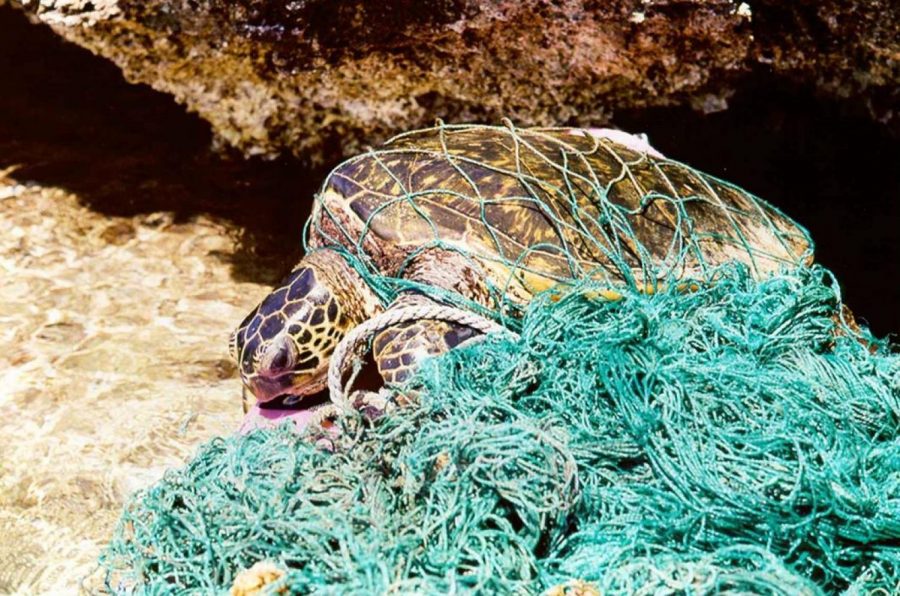Pollution impacts, dangers world’s ocean, marine life
Everyday, chemicals and waste spread to marine life and harm them, even causing death. Some research is saying that the amount of plastic waste could triple by 2025, which is only six years away. If the nearly eight billion people in the world continue to use non-recyclable items, our oceans may become unhealthy to swimmers and marine mammals.
Although many believe that ocean pollution is caused by all of the littering, plastics and other wastes dumped into the ocean, there are many other factors that lead to this. The way people treat the ocean is a major factor. Many of the species living in the ocean are being negatively affected by the CO2 emissions being released into the waters. With these carbon dioxide levels in the ocean, it’s believed that most coral reefs will be dead within the century. Other major contaminating products are gold, copper and other metals found while mining. These materials can harm the life cycles of marine life.
Due to all of the harmful objects floating in the oceans, the oxygen levels are decreasing. With not enough oxygen and the global warming effects, according to Live Science, the seas could be oxygen deprived for thousands of years to come. This also causes marine life to be unable to withhold the changes.
The dropping and rising numbers of the natural chemicals aren’t the only things that are potentially killing marine life. Everyone has seen the pictures of the turtles, seals and even birds like albatrosses that spend time near the beaches, stuck in a plastic grocery bag or dying in the fishing nets left in the seas. The littering at popular beaches or on boats is a large contribution to the oceans being polluted, and even killing marine life.
The people living on Earth are the ones who can stop the pollution of the oceans and the endangerment of the marine mammals. The National Oceanic and Atmospheric Administration (NOAA) says that the majority of the pollutants are from land and human activities along the coastlines. If most of the pollutants are from humans, then that should open some people’s eyes and see the dangers of littering. Many items are made of biodegradable and recyclable materials, allowing humans to help the planet and prevent marine life from being harmed.
There is an immense amount of ways to stop pollution and be helpful when it comes to disposing garbage. The NOAA also mentions that beach clean ups can go a far way. The plastic that beach goers may leave behind can end up in the ocean, and in the ocean it doesn’t degrade as quickly as on land. Being stuck in the ocean surrounded by marine life, the plastic is still intact, and the whales and other creatures can not tell the difference of food or plastic. This is also how many sea turtles end up trapped in fishing nets. Also, river clean ups can be a big help as many rivers lead into the oceans.
One of the best things humans who care about the ocean can do is reduce their plastic use and use more products that are reusable or recyclable. The National Geographic website has a list of wonderful ways to save the oceans. Some of them include taking care of the beaches, travel the ocean responsibly, reduce energy consumption and support ocean protection organizations. By keeping the waters clean, the swimming areas will be safer and marine life will live longer and better lives.



